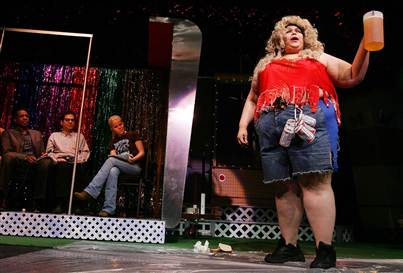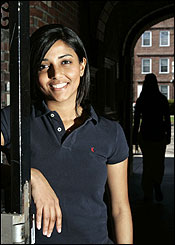Here’s the announcement:
Dear Alumni and Friends,
I wanted you to be among the first to know that Professor Jay Light has been appointed as the next Dean of Harvard Business School. Please see today’s press release that follows.
Sincerely,
Donella M. Rapier
Vice President, Alumni Affairs and Development
Harvard University
********************************************************************************************
Jay O. Light Named Ninth Dean of Harvard Business School
Jay O. Light, an expert in finance and investment management and the Dwight P. Robinson, Jr., Professor of Business Administration at Harvard Business School (HBS), will be the School’s next Dean, President Lawrence H. Summers announced today.
“I am very pleased that Jay Light has agreed to become Dean,” said Summers. “He has done an outstanding job as Acting Dean, and no one is more familiar with the range of opportunities and challenges facing Harvard Business School or better prepared to guide the School in meeting them. As his colleagues and friends well know, he has made extraordinary contributions to HBS over the years, and the School will be well served by his leadership qualities, his deep knowledge of the School’s distinctive character, and his devotion to keeping its programs fresh, forward-looking, and strong as HBS heads toward its second century. Jay is also an excellent citizen of the University more broadly, and his collaborative outlook and engagement with issues of University-wide significance will help strengthen Harvard as a whole.”
A member of the HBS faculty since 1970, Light will assume his new duties immediately. He has been the School’s Acting Dean since August 1, 2005, and previously served in a range of senior leadership roles at HBS. He was chair of the School’s Finance unit from 1986 to 1988 and played an active role in the recent restructuring of the required first-year MBA course in finance. From 1988 to 1992, he was Senior Associate Dean, Director of Faculty Planning, and from 1998 to 2005 he was Senior Associate Dean, Director of Planning and Development, responsible for the School’s strategic planning and new initiatives.
“I am honored to take the helm of a School that has been my life’s work for more than three decades,” Light said. “I follow in the footsteps of some great leaders in management education, including Kim Clark, who stepped down from this office last July, and John McArthur, who ended his tenure as Dean in 1995. I am grateful for the lessons in leadership I learned from them.”
“Harvard Business School is a unique place with extraordinary faculty, students, staff, and facilities, as well as an alumni body of 65,000 women and men who aspire to make a difference in the world,” Light added. “I look forward to working with my colleagues in the years ahead to keep Harvard Business School the world leader in general management education.”
Former Dean Kim Clark said, “I am delighted that President Summers has named Jay Light to be my successor. He has earned the respect of the entire HBS community. With years of wide-ranging experience in academia and the world of business, gifted in planning and implementation, he is especially well prepared to lead the School in an age of innovation, globalization, and technology.” Clark concluded his service as Dean of HBS last summer to assume the presidency of Brigham Young University-Idaho.
As Acting Dean, Light has overseen the completion of Harvard Business School’s successful $600 million campaign, the launch of new faculty initiatives in health care and science-based business, and the final stages of the renovation and restoration of Baker Library, which houses the world’s preeminent collection of business books and archival materials. He also has led innovations in the School’s core educational programs, including a team-based learning initiative in the MBA program and the launch of a new, modular leadership development program in executive education. He has played an active role in the University’s planning for new facilities and activities in Allston as well.
Light earned a bachelor’s degree in engineering physics with highest honors from Cornell University in 1963 and a DBA from Harvard University’s joint program in decision and control theory in 1970. Before joining the HBS faculty, he worked in satellite guidance and systems planning at the Jet Propulsion Laboratory in Pasadena, California. He was later affiliated with a management consulting firm specializing in corporate strategy and planning. From 1977 to 1979, he took a leave of absence from HBS to serve as director of investment and financial policies for the Ford Foundation in New York, where, as Director of Investment and Financial Policies, he was responsible for formulating and implementing the policies used in managing the Foundation’s multibillion-dollar investment portfolio. He returned to HBS in 1979 as a full professor with tenure.
Light is a director of the Harvard Management Company, which oversees the investment of the University’s endowment. He also serves on several other boards, including those of Partners HealthCare and the Groton School. He is a member of the investment committee of several endowments and an adviser to several corporate and institutional pools of capital.
Light’s extensive professional, research, and teaching interests have focused on the capital markets and institutional asset management, including the management of pension funds and endowments, as well as on the entrepreneurial management of technology companies. He is the author of The Financial System, numerous articles for professional journals, and many cases, notes, and working papers on asset management, risk management, negotiation, and corporate finance. In his decades at the School, he has taught many thousands of students in the MBA, doctoral, and executive education programs; his most recent teaching assignment was in the first-year required course on finance.
In announcing Light’s appointment, Summers expressed appreciation to members of the HBS community for their advice on the selection of the new Dean. “I want to thank the many members of the community who offered their counsel during the course of the search, on both the choice of a new Dean and the opportunities and challenges that lie ahead for HBS,” Summers said. “Your advice has contributed a great deal to an outcome that will carry forward the School’s proud tradition of strong leadership and educational excellence.”
Light lives in Belmont, Massachusetts, with his wife, Judy. They are the parents of two grown children.


